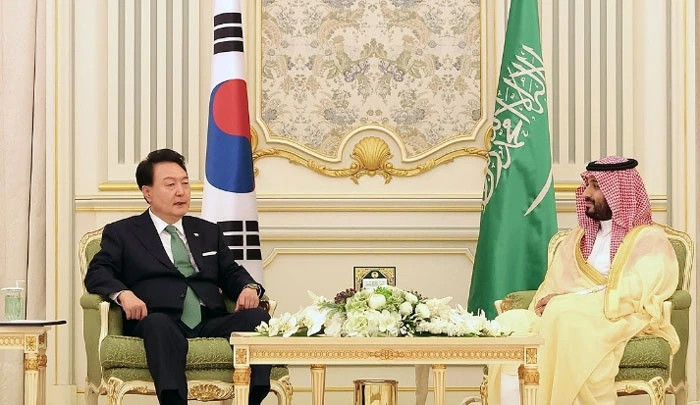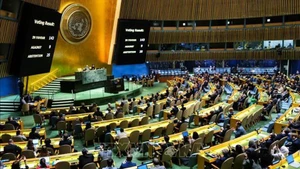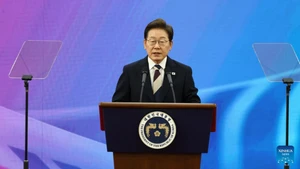This was the first time that the RoK’s President has made state visits to Saudi Arabia and Qatar. Korean officials affirmed that Saudi Arabia and Qatar are the RoK’s two main trading partners in the Middle East. Qatar is the RoK’s leading trade partner in the Middle East, with a bilateral trade turnover of about 14 billion USD in 2022. Meanwhile, the economic cooperation between the RoK and Saudi Arabia has also made remarkable progress, as bilateral trade turnover increased 400 times since establishing their diplomatic ties in 1962.
On the occasion of the visit to the RoK by the Crown Prince of Saudi Arabia, in November 2022, businesses from the two countries signed 26 memoranda of understanding, on projects worth a total of about 29 billion USD.
In the context of strong fluctuations in oil prices, President Yoon Suk Yeol's visit is of important significance in strengthening cooperation with two leading partners in the energy sector, thereby helping the country maintain a stable supply. Saudi Arabia and Qatar currently account for 38% of the RoK’s crude oil and 21% of gas imports. Meanwhile, Saudi Arabia is the largest crude oil supplier to the RoK and Qatar is the country's largest liquefied natural gas (LNG) supplier, accounting for about 31% of the natural gas demand in this East Asian country.
In addition, the RoK officials said through the visits, the country not only wants to strengthen relations in traditional fields such as energy and construction but also open new doors for cooperation in the fields of information technology, automobiles, shipbuilding, renewable energy, culture and entertainment. Accompanying President Yoon Suk Yeol to Saudi Arabia and Qatar were two business delegations consisting of 130 and 59 members, respectively, who are businessmen and heads of major companies in the RoK. Looking at the large accompanying business force, it can be seen that the RoK is determined to promote economic cooperation with two important Middle Eastern partners.
Analysts said the RoK President’s trip to the Middle East has achieved its set goals. During his stop in Saudi Arabia, President Yoon Suk Yeol received a commitment from Saudi Arabia to continue to be a reliable partner, meeting the RoK’s oil needs. On the occasion of the visit, the two sides signed 51 agreements and memoranda of understanding worth 15.6 billion USD. Among the documents signed is a contract between Korea National Petroleum Corporation and Saudi Aramco to construct a reserve of 5.3 million barrels of crude oil at a storage facility in Ulsan City of the RoK. The RoK’s Hyundai Group and Saudi Arabia's Public Investment Fund also signed a contract to invest hundreds of millions of dollars in building an automobile assembly plant in Saudi Arabia. This plant is expected to become the RoK’s first electric car production centre in the Middle East.
In the context of exports and the main growth driver of the RoK’s economy decreasing for 12 consecutive months, newly signed contracts with Saudi Arabia and Qatar are expected to add strength to the Korean economy in the near future.
For Saudi Arabia and Qatar, the RoK President’s visit also brings many benefits, especially for their economic diversification strategy. Analysts said the unpredictable fluctuations in black gold prices have increased budget pressure on Middle Eastern countries, which depend on oil exports.
To transform the economy to gradually reduce dependence on oil revenues and create more jobs in non-energy economic sectors, Saudi Arabia has been pursuing an ambitious reform programme named Vision 2030, in which the RoK, on the occasion of President Yoon Suk Yeol's visit, signed dozens of cooperation agreements, covering many fields such as healthcare, food, tourism, supply chain, technology, and transportation. In Qatar, the two sides also agreed to expand bilateral cooperation in the fields of investment, defence, agriculture, culture and people-to-people exchanges, in addition to traditional fields such as energy and construction.
As expected by the RoK, new doors for economic cooperation with Saudi Arabia and Qatar opened during President Yoon Suk Yeol's visits. These are important foundations for the parties to accelerate their cooperation in the near future.
















